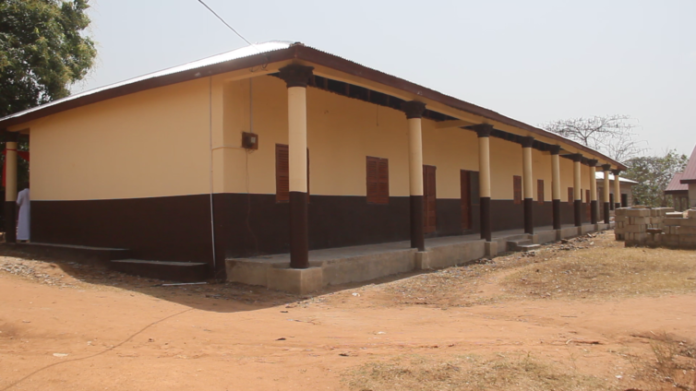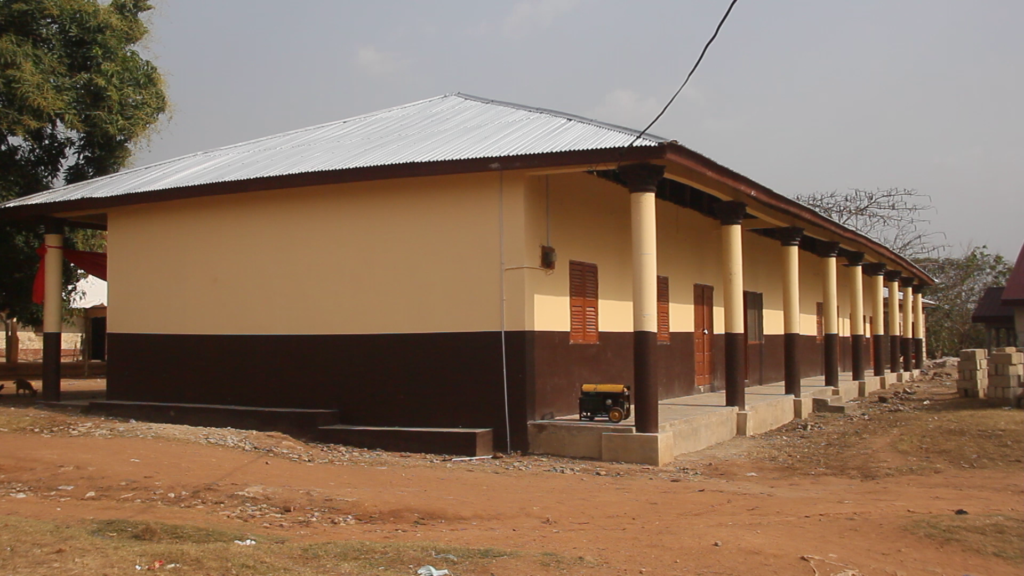
The chief of Dawu has constructed a modern three-Unit Classroom Block for the Dawu R/C Primary school in the Sekyere South District of the Ashanti Region.
According to Nana Kofi Frimpong, the step was part of plans to effectively promote teaching and learning in the community.
He believes that education is the best option for every child’s success, helping them to avoid certain behaviours in society.

Nana Frimpong explained that the project was also intended to help children acquire a good education to improve their knowledge, and reduce the rising teenage pregnancy in the community.
“If you spend money on the education of your children it is better than any other thing because it’s the best investment. When more children are educated it helps the community to develop. I’ve also realized that many of the girls were becoming pregnant so I thought it wise to initiate this project to help educate the children on the need to work towards their future and avoid some of these immoral activities,” he said.
Sekyere South District Education Director, George Adu Abrokwah, thanked the Chief for his initiative and urged for more to be done.

He said the project was jointly funded by the Chief and the Sekyere South District Assembly to ease the daily plights of children in the community.
Mr Abrokwah appealed to individuals and Philanthropic organizations to come to the aid of other deprived communities in the district.
District Chief Executive for the Sekyere South District, Catherine Reckling, while appreciating the efforts of the Dawu Chief for building the school, pledged the assembly’s commitment to ensure there is a good academic environment for children.

She indicated that many of the basic schools across the district are well-equipped with the necessary infrastructure, including adequate classrooms, teacher accommodation, library among others.
Therefore, plans are far advanced to also provide electricity, potable water and conducive latrines to some of the schools lacking.
Mrs Reckling also pointed out that the provision of potable water to the schools will help curtail the spread of typhoid among children in the district.
She called on other chiefs to follow suit as the assembly will not be able to solve every problem in the district.


![Death-trap school building collapses on boy, 13 [Video]](https://www.adomonline.com/wp-content/uploads/2021/01/WhatsApp-Image-2021-01-22-at-18.55.03-218x150.jpeg)